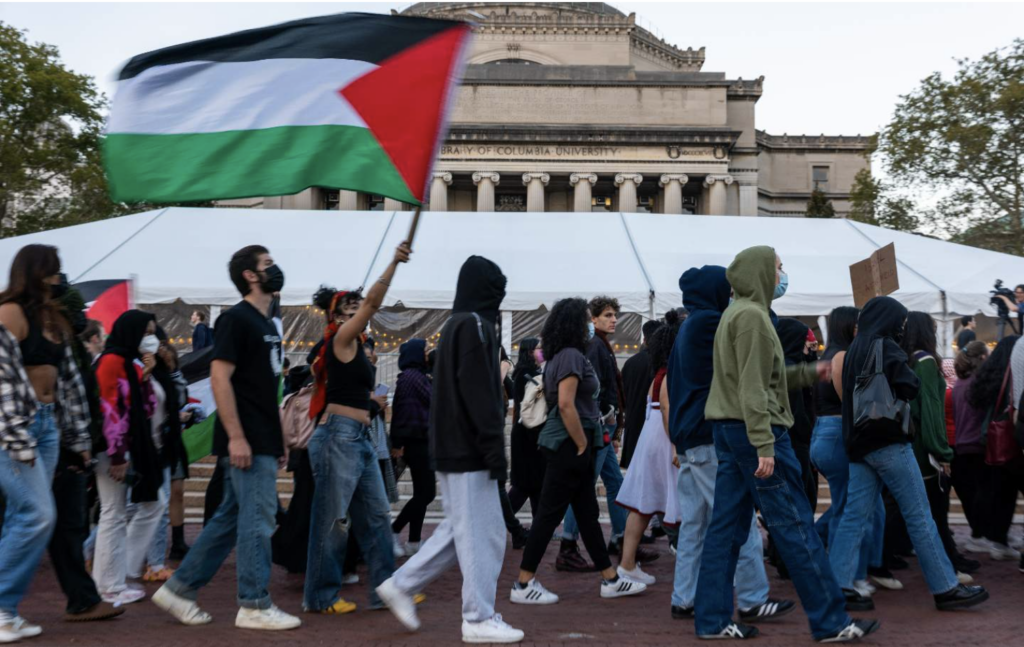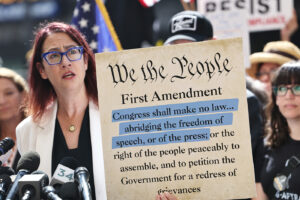October 19, 2023
Columbia University’s Double Standard for Palestinian Protests
By Peter Lucas
The rally by Students for Justice in Palestine faced organized counterprotesters, increased police presence, and limitations to access and assembly.

(Spencer Platt / Getty)
On October 4, 2023, Minouche Shafik was welcomed as Columbia University’s new president. Before beginning her inaugural address—focusing on the value of education and Columbia’s commitment to “rigorous” and “vigorous” debate—Sheena Wright, a Columbia alum and the first deputy mayor of New York City, acknowledged the most visibly engaged audience members: the hundreds of chanting protesters. “You will not have a Columbia welcome without protest—it would not be authentic—so get used to it.”
Days later, after Hamas’s attack on Israel on October 7 and the initial retaliatory attacks from the Israeli government, Columbia deans began e-mailing students on October 9 to address the ongoing violence. Josef Sorett, the dean of Columbia College, expressed sorrow for “the horrific acts of violence and loss of life” in Israel and Gaza, while Shih-Fu Chang of the School of Engineering and Applied Science and Lisa Rosen-Metsch of the School of General Studies sent messages absent the words “Palestine” or “Gaza” or any sentiment of sympathy for the Palestinian people.
The deans’ differing messages quickly became points of debate between students. For many, the unwillingness of Chang and Rosen-Metsch to mention Palestinian deaths felt isolating—and all too predictable. A planned protest on October 12—cosponsored by Columbia Students for Justice in Palestine, the BC/CU Jewish Voice for Peace, and many other student groups—was preceded by an open letter from SJP, stating the club’s “full solidarity with Palestinian resistance to 75 years of Israeli settler-colonialism and apartheid” and condemning the university for investing “in Israeli companies that violate international law and profit off of the construction of illegal settlements on Palestinian land.”


